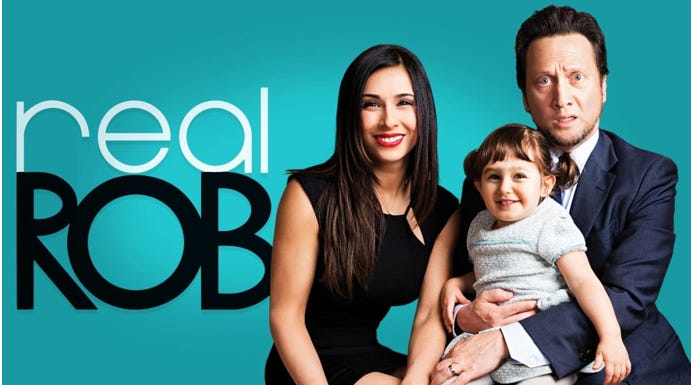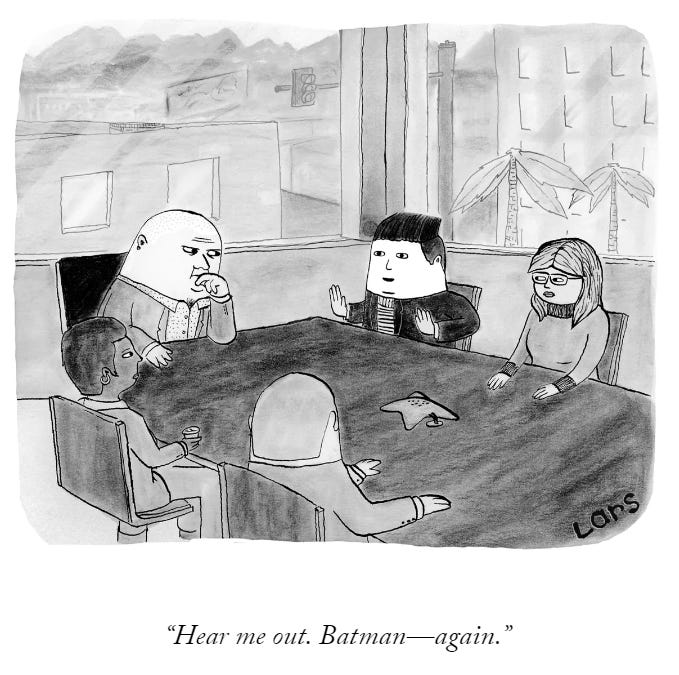📈 Choices Streaming In
Change of pace this week! We’re turning the main page over to the Culture Desk for a discussion on the state of on-demand content ahead of Netflix’s introduction of the ad tier, planned for November.
Come for the memes, stay for… Matt Damon?
Did someone forward this to you? Please consider subscribing. We only grow by referrals and it’d be great to have you as a subscriber. Thanks!
Thousands of channels and nothing on.
That’s been the criticism of traditional cable for decades now. But has the fall of cable and the rise of streaming really solved the problem? The shift to on-demand was ostensibly about consumer choice. I think it’s really about consumers choosing to pay not to see ads and has much less to do with consumers making conscious programming decisions.
There’s no doubt in my mind that consumers scored a major victory when Netflix pioneered on-demand streaming in 2007. In exchange for a monthly charge, you could watch whatever you wanted whenever you wanted to and not see any ads. That value proposition right there is the stake through cable’s heart. They can’t compete with that. Not when their entire business model relies on ads to subsidize ESPN 8 or VH1 2.
That early version of streaming Netflix was awesome but had two major weaknesses: not enough content to keep people on the platform (“bingeing” still had to be done via the DVDs, in many cases) and not enough content where they controlled the broadcast rights.
As a result, Netflix made the decision to make a lot of content really fast. I dug through their 10k from 2007 and didn’t even see a line item for content production. Their DVD library was worth about $100 million, though:
Fast forward to 2022 and DVDs barely warrant a mention. Now, it’s all about content production:
Netlfix’s content assets are estimated to be worth nearly $31 billion. But for every title that’s competing for Oscars or to dominate a long weekend, you get stinkers like this:
Bet you didn’t even know this existed right? Rob Schneider out here, doing the Lord’s work of filling in content gaps for Netflix.
But it illustrates the divide I think consumers are feeling in the content marketplace: it’s either another Marvel origin story or some weird indie movie from A24.
Naturally, this is where Matt Damon shows up.
You probably have DVDs to thank for some of your favorite movies even getting made.
Damon is on record in a few instances about the impact that DVDs made on the TV & movie business. They were, in a way, a “second opening” for a movie. Once the theatrical run was up and the receipts were tallied, studios could count on DVD sales to cover any remaining costs. In finance terms, DVDs acted like a hedge on box office receipts and it meant that studios would be willing to take a risk on a project failing at the box office because they could count on DVD sales to potentially cover costs.
Remove DVD revenue, and now, as a studio, you’re much more reliant on box office receipts to recoup costs. So, the doubling and tripling down on yet another superhero story or Star Wars or Lord of the Rings or any other intellectual property (IP) with an embedded fan base starts to make sense. The last fifteen years have demonstrated that the nerds will show up and drag the rest of us along.
All the studios need to do is rinse and repeat and occasionally upgrade the CGI. We see this shift towards safe, IP-driven tentpoles in TV, too. Why make a new show when you make another Game of Thrones?
What’s the Upside?
It feels like we’re in the middle innings of studios and content companies figuring out what to do with streaming/on-demand. We’re approaching critical mass for the number of streaming platforms someone can subscribe to before thinking “hey this cable arrangement wasn’t so bad.” We already bid adieu to CNN+ and there will certainly be more to follow.
The reception of Netflix’s ad tier will be interesting to watch. Personally, I think it will lead to a reduction in their subscriber base as a cohort of people decide Netflix’s content just isn’t worth it. Parents w/ kids? Disney+. Adult-oriented movies and shows? AppleTV and HBO Max. Content for older kids and adults with a paid live tv option? Hulu (also owned by Disney).
Where does Netflix sit in this world?
Seems like they got their content but there’s still nothing on.
What about you? Will you pay more for Netflix to not watch ads? Let us know in the comments.
For Your Weekend
Read:
The Collectors Who Save Video-Game History from Oblivion by Bijan Stephen (the New Yorker)
Where does a game like Star Fox, Super Mario Bros., or Sharknado: The Video Game actually come from?
The Five Most Interesting College Football Story Lines by Roger Sherman (The Ringer)
Watch:
The Lord of the Rings: Rings of Power (Prime Video)
Amazon’s long-awaited adaptation of The Lord of the Rings debuts this weekend. As a fan of the books and Peter Jackson’s original LOTR film trilogy (I disown The Hobbit trilogy as overwrought dreck cuz of course I do) and as an observer of Amazon’s uneven track record with fantasy IP (see Time, Wheel of), color me nervous. Still, I plan on tuning in.










